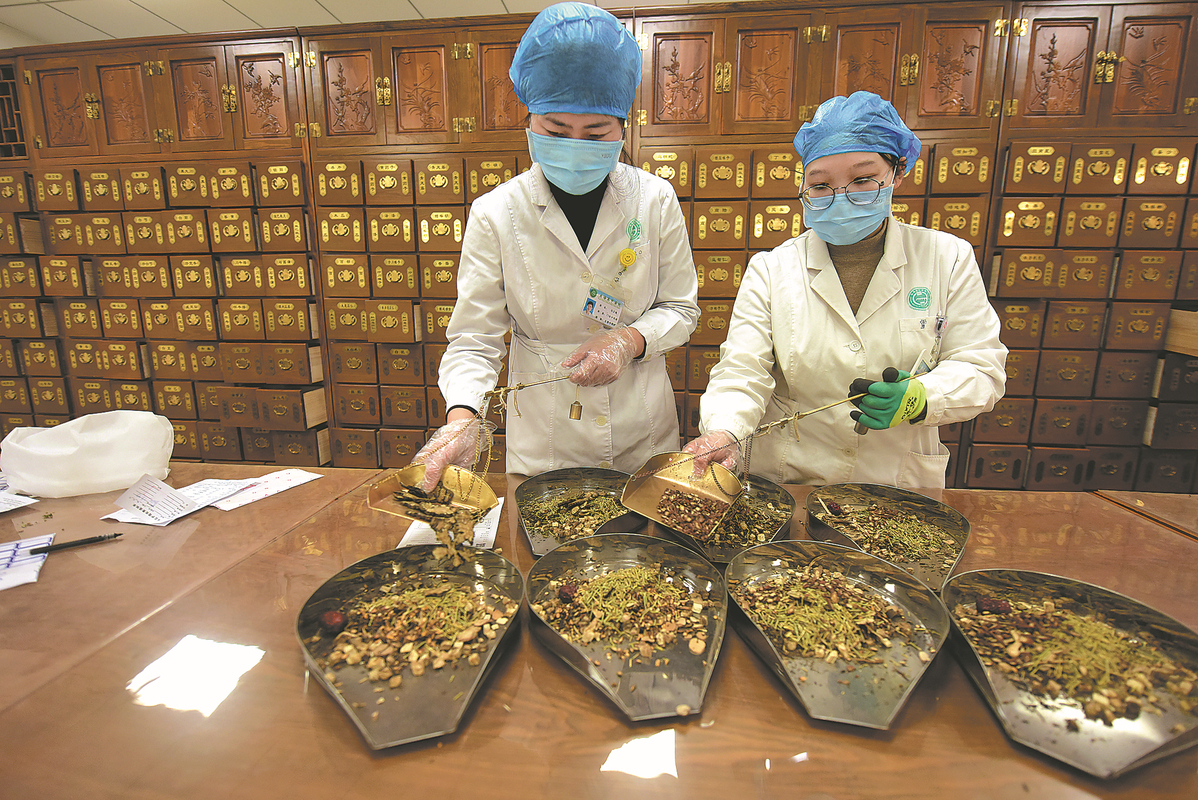Ramping up innovations in TCM research
Integration with new technologies spurs industry's growth


TCM, an integral part of China's culture and heritage, has played a significant role in the healthcare of the nation's people for thousands of years. It emphasizes holistic healing and preventive care, focusing on a comprehensive system of healthcare that includes modalities such as acupuncture, herbal medicine, tuina (Chinese medical massage), and dietary therapy.
Nowadays, TCM is practiced alongside modern medicine in hospitals and clinics across the country and has gained recognition internationally, with acupuncture and herbal medicine being used by practitioners worldwide.
Data from the National Administration of Traditional Chinese Medicine show that under China's three-tiered public hospital system, about 89 percent of the secondary and higher-grade public comprehensive hospitals and 62.8 percent of maternity and child health hospitals have TCM departments or clinics. Outpatient visits to TCM medical facilities are estimated to have reached 12.8 billion in 2023.
According to healthcare research institute VCBeat Research, the market of TCM healthcare services is expected to reach 7.13 trillion yuan in 2026, with an average annual compound growth rate of 6.2 percent since 2022. To support development of the expanding market, experts say a modern TCM industry system must be constructed.
"The development of TCM has been deeply integrated with new technologies including big data, internet of things, and artificial intelligence," said Geng Funeng, vice-president of the China Association of Traditional Chinese Medicine and chairman of Good Doctor Group, a major enterprise with businesses across TCM research, production and trade. "The modernization of TCM has been accelerating, and sci-tech innovation has become a new engine for its inheritance and development."
Good Doctor Group has embarked on digital upgrades to ensure large-scale and high-quality production of key materials for its flagship TCM patent medicines, including Kanggan Granule, a signature TCM cold treatment, and Kangfuxin Liquid, which uses an extract from American cockroaches to treat bleeding stomach pain, wounds, injuries, and ulcers.
The company has invested 860 million yuan in the construction of a digital smart factory, which includes facilities for the large-scale cultivation of the bugs and production lines for Kangfuxin Liquid and Kanggan Granule.
Geng said the aim is to improve production efficiency and product quality supervision through advanced digital technologies, adding that compared to traditional production methods, the digital smart factory boasts a higher level of automation and stricter quality control for a large-scale production capacity.
"We employ digital means to monitor and manage every aspect of the production process, ensuring that every single medicinal product meets stringent quality standards," he said.























